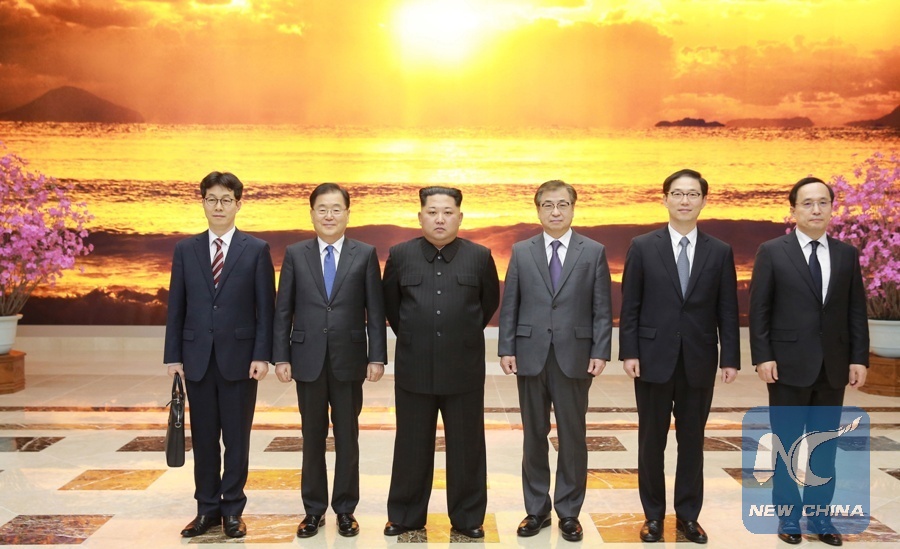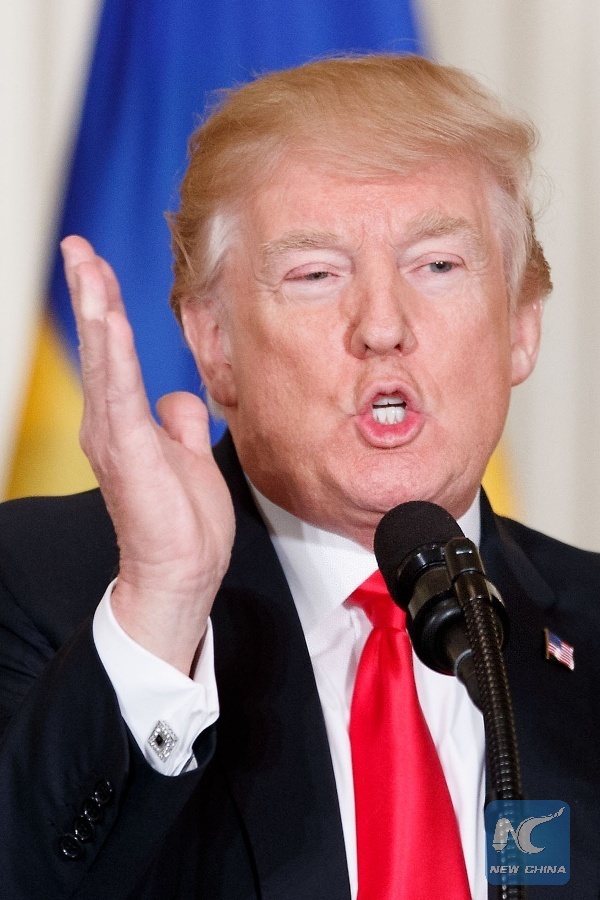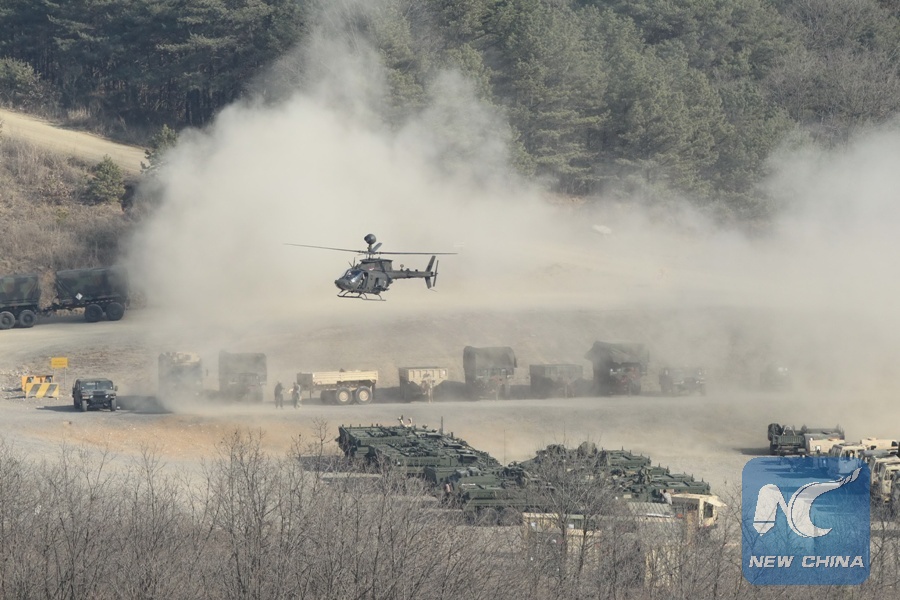
Photo provided by Korean Central News Agency (KCNA) on March 6, 2018 shows Kim Jong Un (3rd L), top leader of the Democratic People's Republic of Korea (DPRK), posing for a group photo with the members of South Korean delegation. (Xinhua/KCNA)
WASHINGTON, March 8 (Xinhua) -- As talks between Pyongyang and Seoul start to yield results, experts on Wednesday urged the White House not to rock the boat.
The Democratic People's Republic of Korea (DPRK) made a tension-easing gesture earlier this week during a two-day visit by a high-level South Korean delegation to Pyongyang.
The DPRK showed willingness to talk "candidly" with the United States on issues including denuclearization of the Korean Peninsula and normalization of ties with Washington. It also agreed to hold the third inter-Korean summit in late April.
"Seoul's immediate objective is to buy time and create the conditions necessary to bring Washington and Pyongyang together," noted Scott A. Snyder, a senior fellow for Korea studies at Council on Foreign Relations (CFR),a New York-based think tank.
CFR President Richard Haas said that it is time for Washington to step up to the plate to further de-escalate tension in the region.
"The United States needs to decide what it would offer North Korea (the DPRK), ie, security assurances, adjustments to U.S.-South Korea exercises, reduced economic sanctions," Haas said.
"We need to get (U.S.) professionals there to talk about talks," Douglas Paal, vice president for studies at the Carnegie Endowment for International Peace, told Xinhua.

File Photo: U.S. President Donald Trump addresses a press conference with visiting Swedish Prime Minister Stefan Lofven (not in the photo) at the White House in Washington D.C., the United States, March 6, 2018. (Xinhua/Ting Shen)
However, so far little concrete change has been detected on the Trump administration's policy on the DPRK.
U.S. Vice President Mike Pence kept a harsh tone in a statement released on Tuesday, saying a "maximum pressure" strategy against Pyongyang to seek an end to its nuclear program will continue.
Meanwhile, the U.S. State Department said no "play-by-play" will be provided about the U.S. response to the Pyongyang meeting before they are briefed by Seoul.
Two senior South Korean officials who met with DPRK leader Kim Jong Un left for Washington on Thursday to brief U.S. officials on the outcome of their meeting.
The White House has announced that routine U.S. military exercises with allies in the region would resume, casting cloud on the current situation.
The next U.S.-South Korean drill is expected in April.

An armored helicopter prepare to land on the ground during the annual joint military exercise Foal Eagle between South Korea and the United States in Pocheon, northeast of Seoul, March 25, 2015. (Xinhua/Seongbin Kang)
If U.S. President Donald Trump has indeed decided to require "complete, verifiable, and irreversible denuclearization" of the DPRK before "meaningful dialogue" can occur, it is safe to say such dialogue will never happen under this administration, said Bonnie Kristian, a fellow at Defense Priorities, a Washington D.C.-based think tank.
"The Trump administration should support our ally's interest in negotiations, not undermine it," Kristian added.

